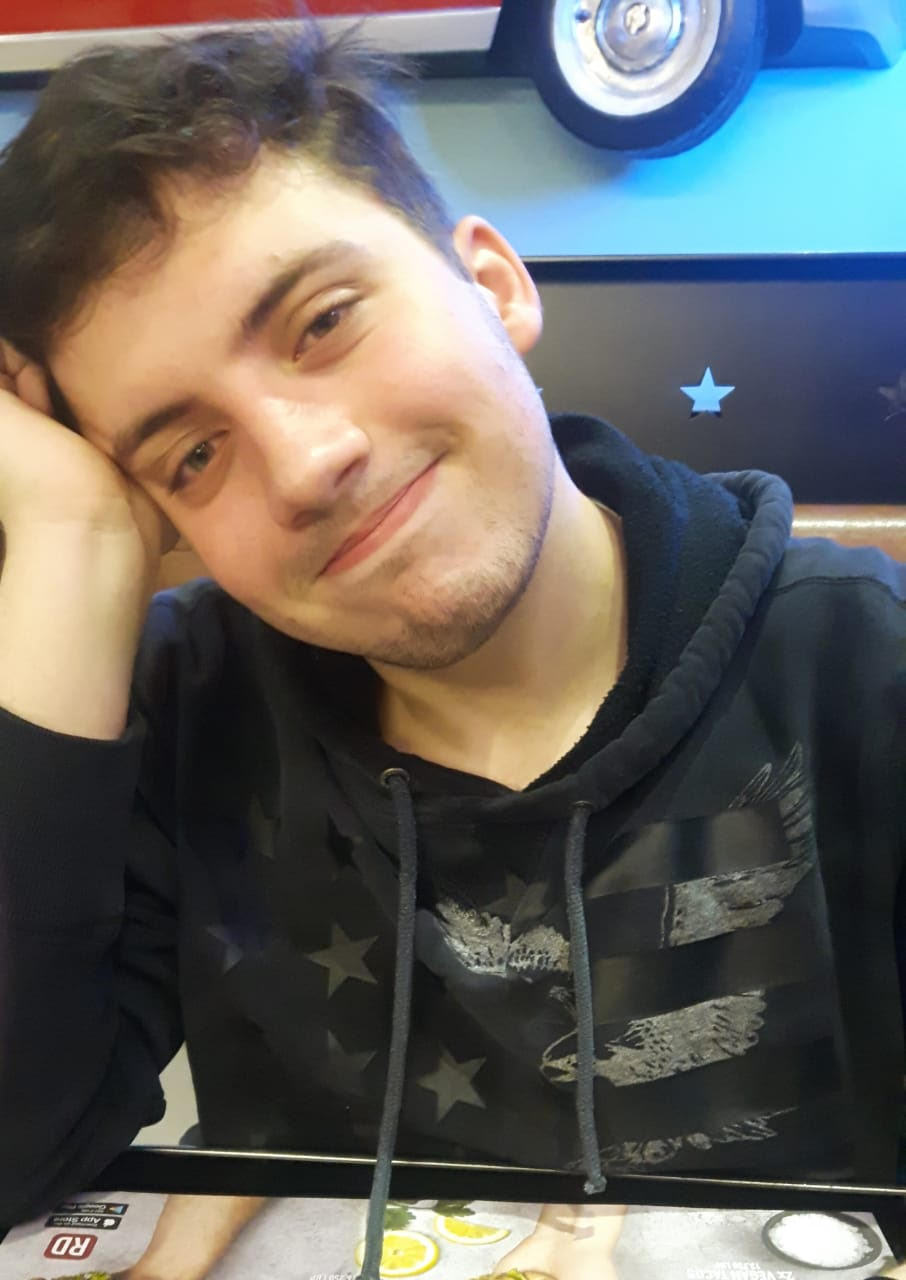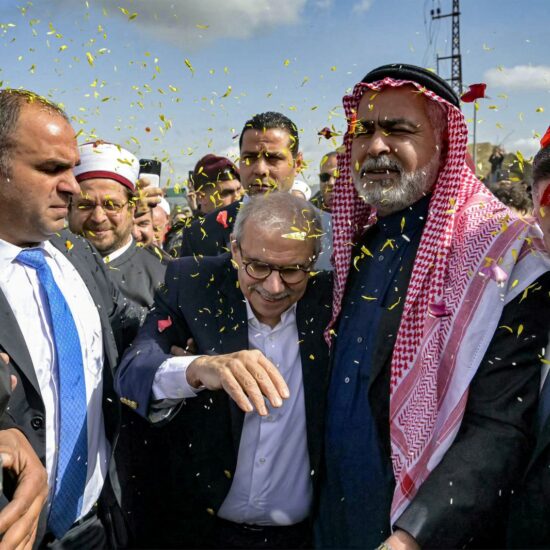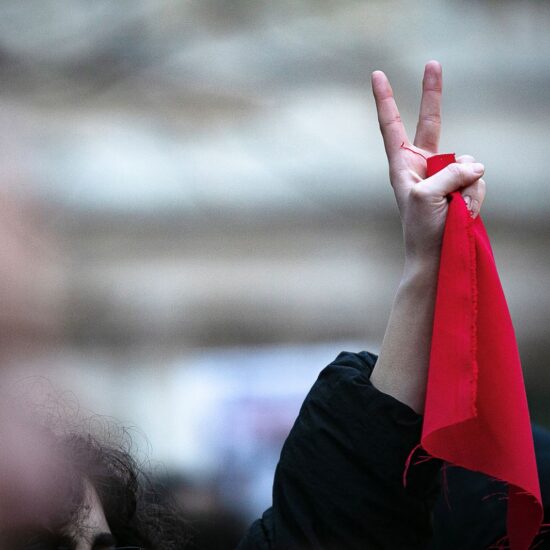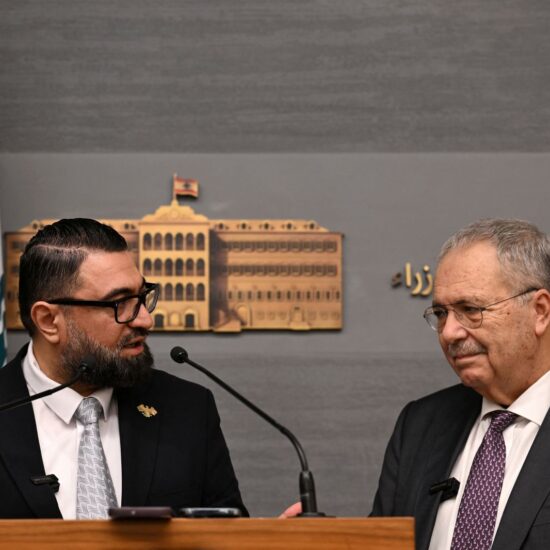
Polarizing arguments inside the ‘change camp’ are disrupting personal and political relationships between Lebanese activists, forcing them back to the partisan game
Over the past eleven months, the Lebanese political scene has experienced intense polarization after Israel began its genocide on Gaza and Hezbollah entered the battle, ostensibly to relieve the Gaza front. Perhaps the most apparent, and dangerous, of these polarizations happened in the ‘change camp,’ loosely defined as a group of activists and initiatives which emerged after the October 17 protests and called for political and economic reform. Over the past eleven months, these groups have been fighting amongst themselves over the role of Hezbollah, Hamas, and the Lebanese people in aiding Gaza, and the local implications of their actions.
There is now a dichotomy amongst the change camp: those who openly encouraged a certain degree of escalation on part of Hezbollah, and those who warned that Hezbollah’s skirmishes with Israel would bring a great deal of damage to Lebanon and its infrastructure, especially in south Lebanon. The point of contention was not only limited to the question of Hezbollah’s military activity, but also exposed what appeared to be deep grudges, differences of opinion, and conceptual divergences when it came to diagnosing the causes and implications of Lebanon’s crisis. Public manifestations of this dichotomy get more vicious by the day.
One common tactic for the side of the change camp which favored escalation has been calling those who criticized Hezbollah’s – or Hamas’ – military escalation traitors or Zionists. While this may appear to be nothing but juvenile name calling, in Lebanon such a charge could have dangerous legal and safety consequences, and as such it carries a great weight especially in the midst of genocide even if it wasn’t substantiated.
Capitalizing on the moral weight of Palestinian suffering, many pro-intervention people have also sought to paint Hezbollah as a Lebanese military deterrent to Israel, one which has kept Israel ‘at bay.’
The side of the change camp that opposed Hezbollah’s military escalation in south Lebanon, in the face of a campaign of active delegitimization and alienation amongst progressive and radical leftists, sought to rebrand itself (at least in terms of rhetoric), similarly to parties that had a history of anti-Palestinian racism and violence, namely the Kataeb and the Lebanese Forces. Most of this shift depended on the aversion of progressives to any discussion on sovereignty and independence, which never failed to disappoint. Some even tried to paint the Palestinian cause as something that can be ignored through neutrality or rhetorical abstention.
Naturally, the aforementioned manifestations of this polarization have benefited no one except the established political parties. The elections of 2022 represented a watershed, when a coalition of anti-establishment groups managed to elect thirteen new candidates into the parliament, creating a visible counterweight to establishment political parties. Since the elections, the political parties and their supporting media apparatus have sought to delegitimize and sow discord amongst the new elected MPs, playing on their ideological leanings and the absence of a united front between them. This split in an already split group is what the establishment parties want, especially a beleaguered Hezbollah.
Back to the partisan game
So, what happened? Why is it that a group of people, who made their voices heard very forcefully despite severe adversity, now find themselves sliding back into the partisan game? The error here lies in the fact that these same change camp actors, across the political spectrum, have never really had a come-to-Jesus moment. Whatever alliance or convergence happened during elections and never outlasted it, and therefore the purported united front is simply nonexistent. This created a semblance of unity – for want of better word – which was vulnerable to a shakeup as massive as October 7 and the genocide.
What is most disheartening about these public arguments was how they affected personal relationships between Lebanese activists. One link, however tenuous, was that many Lebanese anti-establishment activists knew each other and enjoyed personal friendships which tended to transcend ideological lines and political considerations. But as the vitriol increased in the public disagreement aspect, there was increasingly a disruption of these links, if not their complete breakdown. It has now become quite common to call someone a Zionist, with all the violent implications that word represents and might cause. It has become much easier to avoid dialogue and conversation about sensitive topics.
In seeking to portray a performance of pro-Palestine support whose rules are set by Hezbollah and its political considerations, pro-escalation activists have abandoned any awareness of how their tone policing in regard to the role of Hezbollah contradicts much of what they stand for. They have apparently come to the conclusion that only unconditional support for Hezbollah’s escalation constitutes proper support for Palestine. These people forget that Hezbollah has actively cracked down on any semblance of dissent, from the October 2019 protests and onwards. How do they reconcile Hezbollah’s position as the regime’s protector with their support for its ‘resistance’?
It would be wrong to say that everyone is free of fault here, but there is a widespread belief, one that can be supported by fact, that the pro-escalation side has been the most responsible for fights, accusations, and spiteful conversations. While some anti-escalation people have also contributed to the polarization, most of them have also continued to reach out and try to bridge gaps, with varying results. However, there is no guarantee that any bridge would remain, especially as the weight of the genocide hangs heavier than ever on the hearts and minds of everyone in Lebanon and elsewhere.
There is, today more than ever, a need for everyone who even tangentially identifies as a supporter of political change in Lebanon to initiate a national conversation about the differences of the past year and how the future looks like. With a little more than eighteen months before the next parliamentary election, no effort should be spared to support anti-establishment candidates and their campaigns. Otherwise, we will witness an electoral defeat of catastrophic proportions, which would confine any political effort to challenge the dominant political parties and their corruption to the margins.
The views in this story reflect those of the author alone and do not necessarily reflect the beliefs of NOW.








